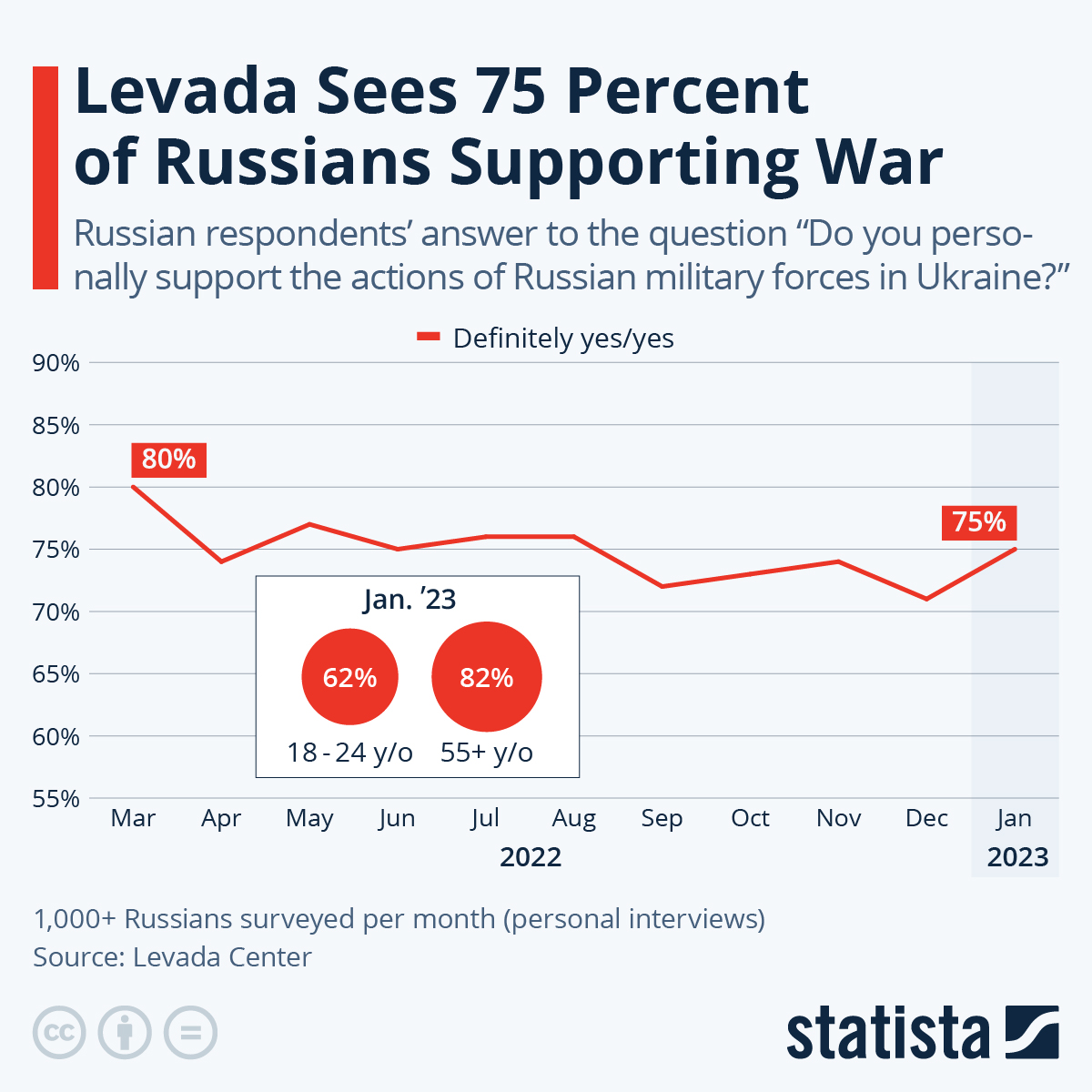
According to a new survey by the independent institute Levada Center, 75 percent of Russians said in January that they supported the actions of Russian military forces in Ukraine, as the survey is putting it.
This support dipped to 72 percent in September around the announcement of partial mobilization and again to 71 percent in December.
When the war had just started in March, support had been at 80 percent.
You will find more infographics at Statista
As Statista's Katharina Buchholz notes, the Russian state-controlled media environment explains why approval rating for Putin or the Ukraine war can stay so high despite the country now being extremely marginalized in the international community and enduring the hardships of sanctions and war mobilization. Despite the surveys carried out by an independent researcher, many Russians may still feel pressured to give a favorable opinion because of the system they live in. The Levada Center has in a release pointed out that, while surveys only show the behavior people are willing to display publicly, survey-taking behavior has not changed since the invasion. Some observers believe war approval to actually be lower.
As part of the same survey, Russians were asked what feelings the news of the mobilization caused in them. Fear was the most common answer given throughout all age demographics.
The second most common answer varied by age group, however.
Those above the age of 40 were also likely to feel pride for Russia, while those younger named shock as the second most common feeling in relation to the mobilization, followed by anger.
According to a new survey by the independent institute Levada Center, 75 percent of Russians said in January that they supported the actions of Russian military forces in Ukraine, as the survey is putting it.
This support dipped to 72 percent in September around the announcement of partial mobilization and again to 71 percent in December.
When the war had just started in March, support had been at 80 percent.
You will find more infographics at Statista
As Statista’s Katharina Buchholz notes, the Russian state-controlled media environment explains why approval rating for Putin or the Ukraine war can stay so high despite the country now being extremely marginalized in the international community and enduring the hardships of sanctions and war mobilization. Despite the surveys carried out by an independent researcher, many Russians may still feel pressured to give a favorable opinion because of the system they live in. The Levada Center has in a release pointed out that, while surveys only show the behavior people are willing to display publicly, survey-taking behavior has not changed since the invasion. Some observers believe war approval to actually be lower.
As part of the same survey, Russians were asked what feelings the news of the mobilization caused in them. Fear was the most common answer given throughout all age demographics.
The second most common answer varied by age group, however.
Those above the age of 40 were also likely to feel pride for Russia, while those younger named shock as the second most common feeling in relation to the mobilization, followed by anger.
Loading…






